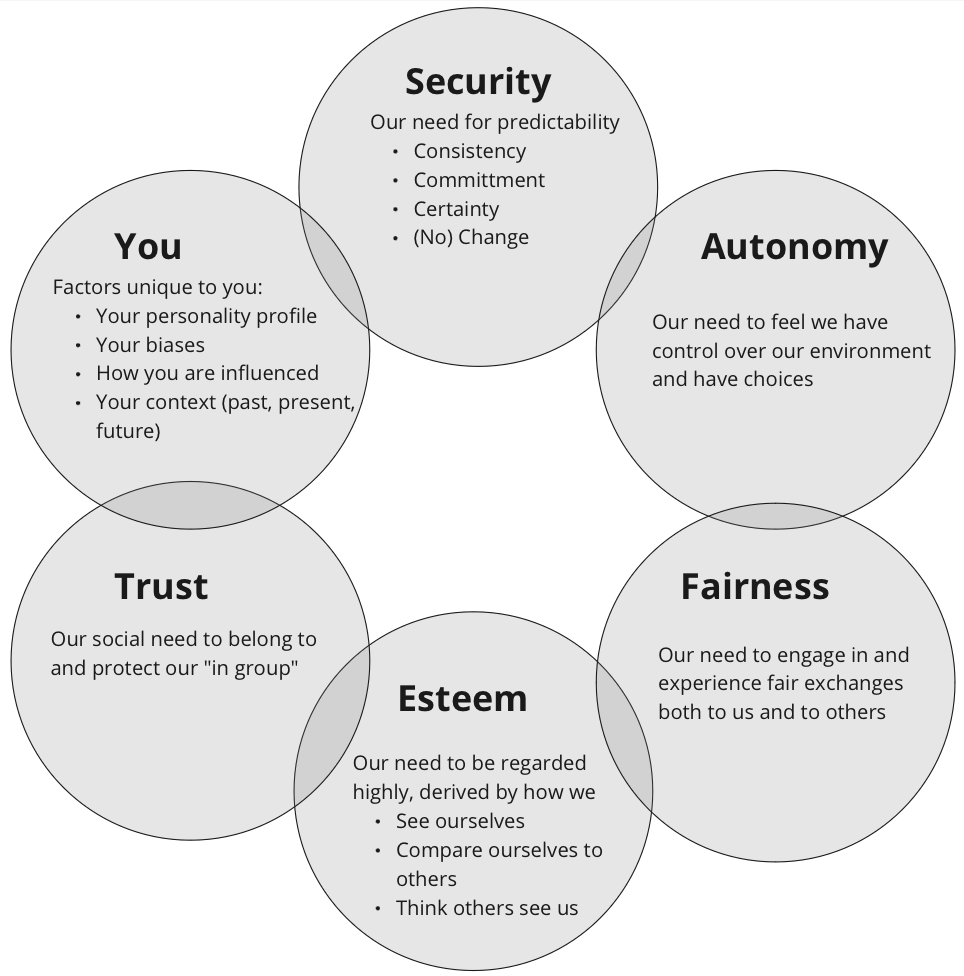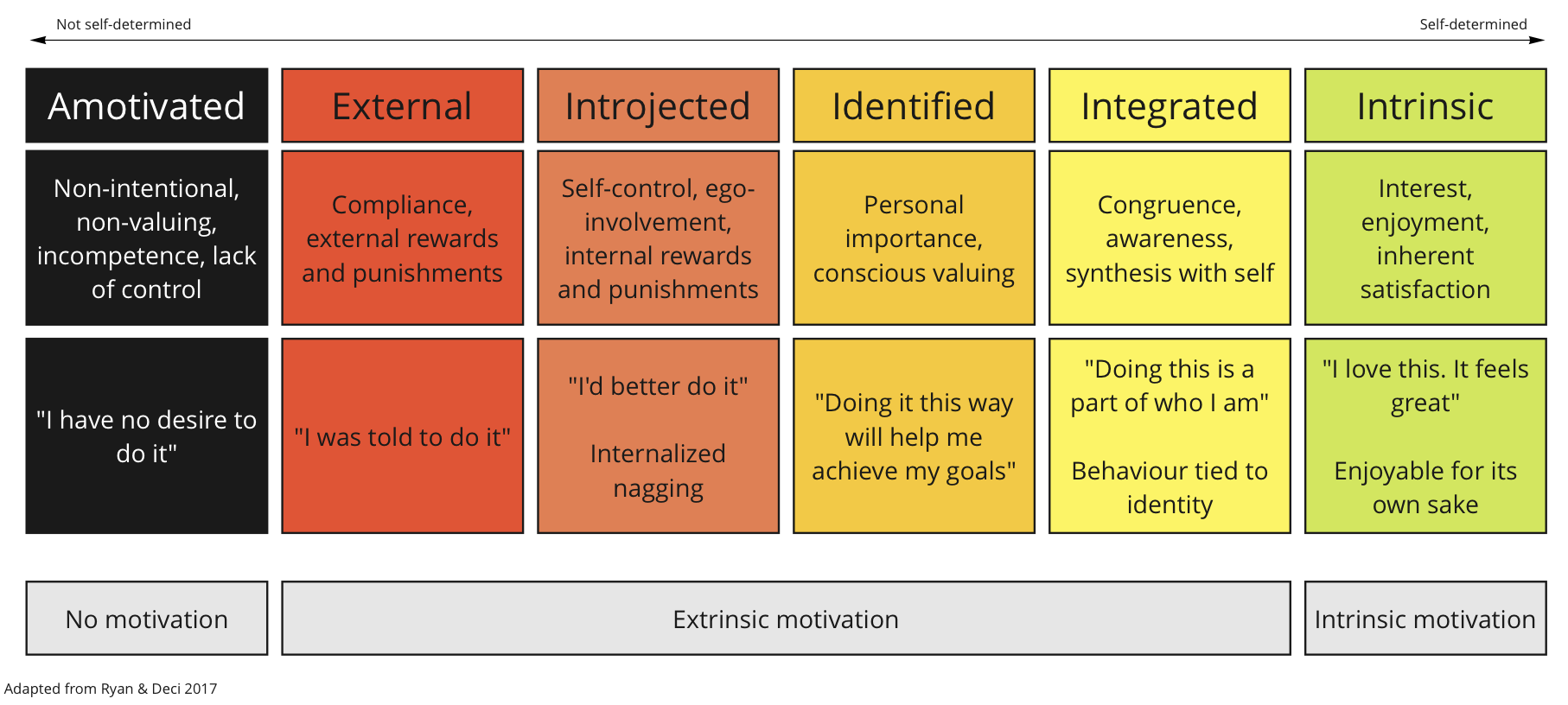I frequently hear “my people won’t speak up during standup” or “they aren’t participating in retro” or other activities. Unfortunately, there are many different reasons why this might be so it’s not a simple problem to fix. Step one is to figure out why this might be happening.
First, I’ve noticed a tendency to blame the fact that cameras are off in remote meetings. While I think this certainly makes the problem worse, I don’t think the cameras are the cause of the problem. I think the ability to turn cameras off just makes it easier to hide when one of these other factors is in play. Therefore, forcing cameras on won’t actually fix the underlying problems, and might actually make things worse.
The factors I usually see are:
- Insufficient psychological safety
- Insufficient motivation
- They believe someone else will handle it.
- They feel they have nothing to contribute
- They’re focused on other things they consider higher priority
- They’re tired or burnt-out
- The group may be too large
- The meeting facilitation might just be poor
Let’s look at each.
Insufficient psychological safety
Not speaking up when there’s a problem is the classic behaviour we expect to see when lacking psychological safety.
I’ve written before about the SAFETY model of psychological safety. This explains the neuroscience of what we need to ensure safety. If we want people to participate, they must feel safe enough to do so. Refer to that article for more.
A key indicator that psychological safety might be the problem is when we observe that people participate less when their management is in the room.
Insufficient motivation
Self-Determination Theory (SDT) describes six different levels of motivation, ranging from fully intrinsically motivated on the far right to completely unmotivated on the far left. The further we are to the left, the less likely we are to speak up in these meetings.
If we want active participation, we need to find a way to shift people to the right on this chart, which requires them to be more self-motivated.
They believe someone else will handle it.
No matter how important a topic might be, if we feel that someone else is going to handle it, we often step back. The psychological phenomena social proof shows that we’ll often step back even when it isn’t clear that someone else will to handle it.
I recall that when I took first aid training, I was cautioned to never just call out “someone call for an ambulance” because often nobody would, and this is social proof at work. Instead, we were instructed to point at one specific person and say “You, call for an ambulance” because that snaps people out of that social proof and increases the likelihood that anyone will do it.
We can use this same approach in our meetings by asking specific people to do tasks, rather than asking if anyone will do it.
If we have hero culture in our environment then it’s highly likely that everyone except the hero will step back, with the expectation that the hero will do it all. This is unsustainable of course, as no one person can do it all, and the hero will ultimately burn out.
They feel they have nothing to contribute
There are several reasons why this might be true.
- Perhaps there’s a skills issue and this person truly doesn’t have the right skills to contribute. Do we need some training or some cross-skilling?
- Perhaps they’re new and are just absorbing and learning. This certainly isn’t bad although we’d like to encourage them contribute anyway.
- Perhaps this meeting really isn’t useful for them and they shouldn’t really be here. I always encourage teams to use the Law of Mobility: “If you aren’t learning or contributing, then you are expected to go somewhere else where you can do one of those.”
- Perhaps we have hero culture and everyone who isn’t the hero has become convinced that there’s nothing useful they can do, so they disengage.
The Law of Mobility from open space states: “If you aren’t learning or contributing, then you are expected to go somewhere else where you can do one of those”. This makes it the responsibility of each individual to use their own time effectively.
They’re focused on other things they consider higher priority
In today’s business climate, we almost always have multiple competing priorities all the time, and the participants just may feel that this meeting isn’t the best use of their time. See the Law of Mobility above - perhaps this meeting isn’t the best use of their time and they should be elsewhere.
It’s become common today to sit in one meeting while doing work from something completely different. Strangely, many people feel this is an effective use of their time to have their attention split like this. The science on multitasking would disagree that it’s useful for the individual, and the other members of the room would probably prefer to not having to repeat themselves for the people who weren’t paying attention.
They’re tired or burned out
We’re all human and sometimes we have days where we’re just not that productive. The fact that someone is quiet once, could just be an off day. It’s only when it becomes a pattern that we need to worry about it.
Burnout, however, is a real thing that can take months to recover from. If we’ve burned out our people, we should expect they won’t be productive again for a long time, and that’s usually a failure of management.
The group may be too large
The larger the group, the less likely we are to get participation from everyone. I’ve facilitated meetings with two hundred people where only a handful of people will speak.
If the group is too large then try subdividing it into smaller groups that later report back to the larger group. Note that “too large” is very subjective and can still be a fairly small number.
The meeting facilitation might just be poor
I leave this for last because it’s often hard to hold up the mirror to ourselves. The truth however, is that no matter how interesting the topic is or how important it is, a poorly facilitated meeting can destroy any motivation to participate.
We’ve all been to a lecture on a fascinating topic and lost all interest just a few minutes in when the speaker spoke in a monotone, or kept wandering off topic, or completely misread the room. The same applies to working meetings that are poorly facilitated. If people are regularly disengaging from our meetings, it’s time to consider if we might be the problem.
The simple way to test this is to invite other people to facilitate the meetings for you. I encourage you to have guest facilitators anyway, as you’ll always learn something new from watching someone else do it, even if what you learn is how not to do something.
Conclusion
If people aren’t participating in your meetings then step one is to figure out why that might be. There are so many things it could be, and knowing which one is in play is critical to knowing how to fix the problem.



